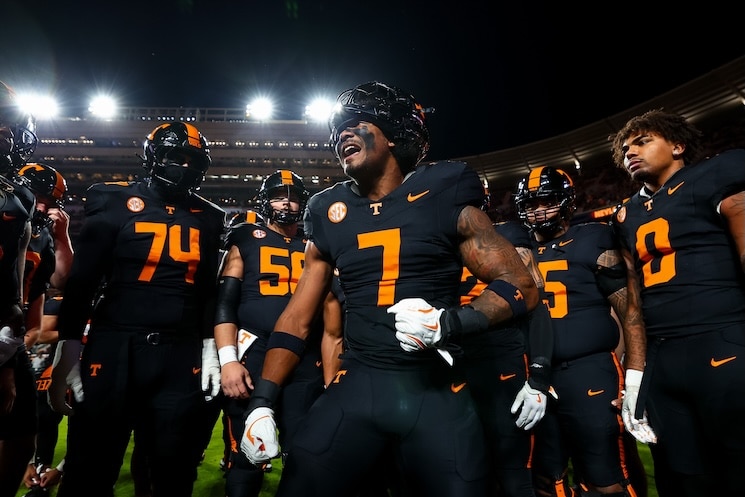
For the first few years of the Butch Jones era at Tennessee, the Vols were able to dominate in-state recruiting. The Vols nabbed most of the highly-rated players within the state of Tennessee, and most fans expected them to do the same with a loaded crop of talented players in the 2017 class.
What happened, however, was a surprising regression in in-state recruiting that continued after a drop-off in the 2016 cycle as well.
According to 247Sports, the Vols picked up commitments from three of the top six players in the state of Tennessee, including the No. 1 in-state player in offensive tackle Trey Smith. Those results aren’t that far off from what Jones and his staffs have done the previous few years. But beyond that, Tennessee’s results within their own borders don’t compare at all.
Tennessee doesn’t have another commitment in the top 10 of in-state prospects in the 2017 class. They do have pledges from No. 12 LaTrell Bumphus, No. 17 Theo Jackson, No. 21 K’Rojhn Calbert, and No. 26 Princeton Fant. That makes seven of the top 26 players in the state of Tennessee that the Vols have commitments from. Compare that and their numbers in the 2016 class to their ratios from 2015 and 2014, and it’s easy to see the drop-off.
In 2014, the Vols signed all but two of the top 11 players in the state of Tennessee. The 2015 class saw Tennessee nab three of the top four and four of the top seven players in the state while also picking up commitments from players ranked No. 16, No. 17, and No. 22 in the state.
The 2016 class saw a drop-off in numbers from an in-state perspective. Tennessee’s 2016 class was far smaller than Jones’ previous two, and that meant the Vols had to limit who they took in all around the country, not just in the state of Tennessee. But that’s not an excuse for the downward trend in-state recruiting took in this cycle. The Vols picked up signatures from just two of the top five players within the state of Tennessee, and the only other top-20 player they added in-state was No. 16 Austin Pope. Tennessee missed out on the top two in-state players in the 2016 cycle, something they hadn’t done under Jones the previous two seasons.
Add that to 2017’s disappointing results, and the future of in-state recruiting has come into question.
This year’s class isn’t just about the number of players Tennessee has missed out on; it’s also about who the Vols have missed. Both Tee Higgins and Amari Rodgers are at positions of need at wide receiver, and Tennessee missed on both of them. Both Higgins and Rodgers played high school football just miles away from UT’s campus, and Rodgers is a legacy recruit to boot. Tennessee also desperately needed running back commitments, and getting Ty Chandler was big because of that. But missing out on Cordarrian Richardson and Chase Hayden, another legacy recruit, hurt just as much.
But despite the disappointing results in-state over the last two seasons (and especially this year), can the Vols recover in 2018 and start pulling in the top talent within their own border again?
So far, the Vols already have commitments from two of the top nine players in the state, including No. 1 in-state recruit Cade Mays. They also have a commitment from No. 9 in-state prospect Alontae Taylor. But how many more of the state’s top players can the Vols add to that list?
It’s very early in the evaluation period of the 2018 class, but the Vols are in good position for most of the top recruits in the state of Tennessee at this point. And given the fact that there are 11 players rated as four-stars or higher in-state for the 2018 class according to 247Sports, it’s imperative the Vols don’t miss out on that talent again.
Tennessee has taken a step back with their in-state recruiting the last two cycles, but they’re off to a good start in the 2018 class. At this point last year, however, the Vols seemed to be in good standing for the 2017 class too. Then they struck out on a number in-state recruits and lost commitments from others.
The Vols must avoid a similar fate in the 2018 cycle. A strong start isn’t nearly as important as a strong finish. Tennessee needs to rebound with their in-state recruiting in 2018 because they can’t afford another downward slide.



